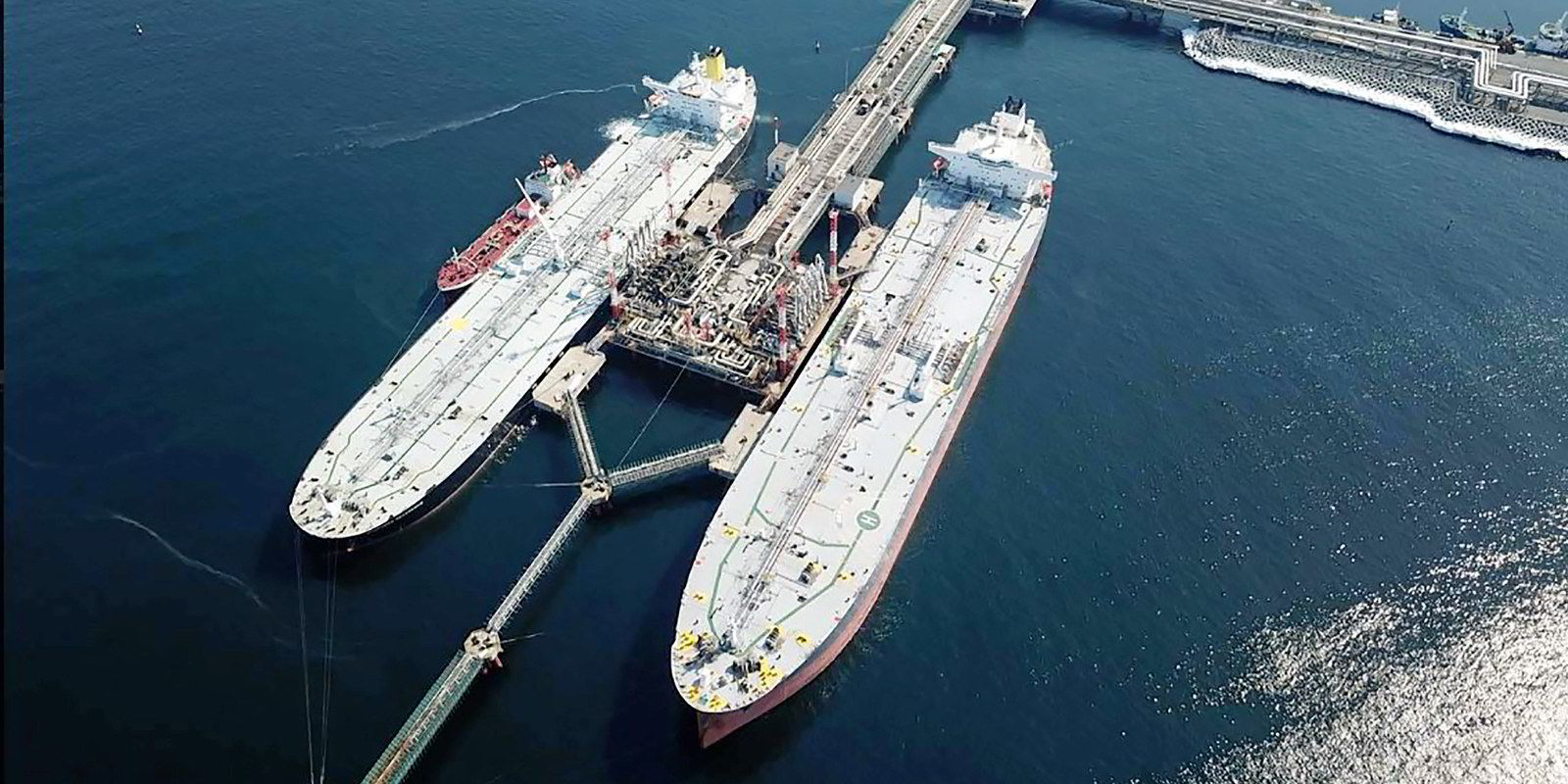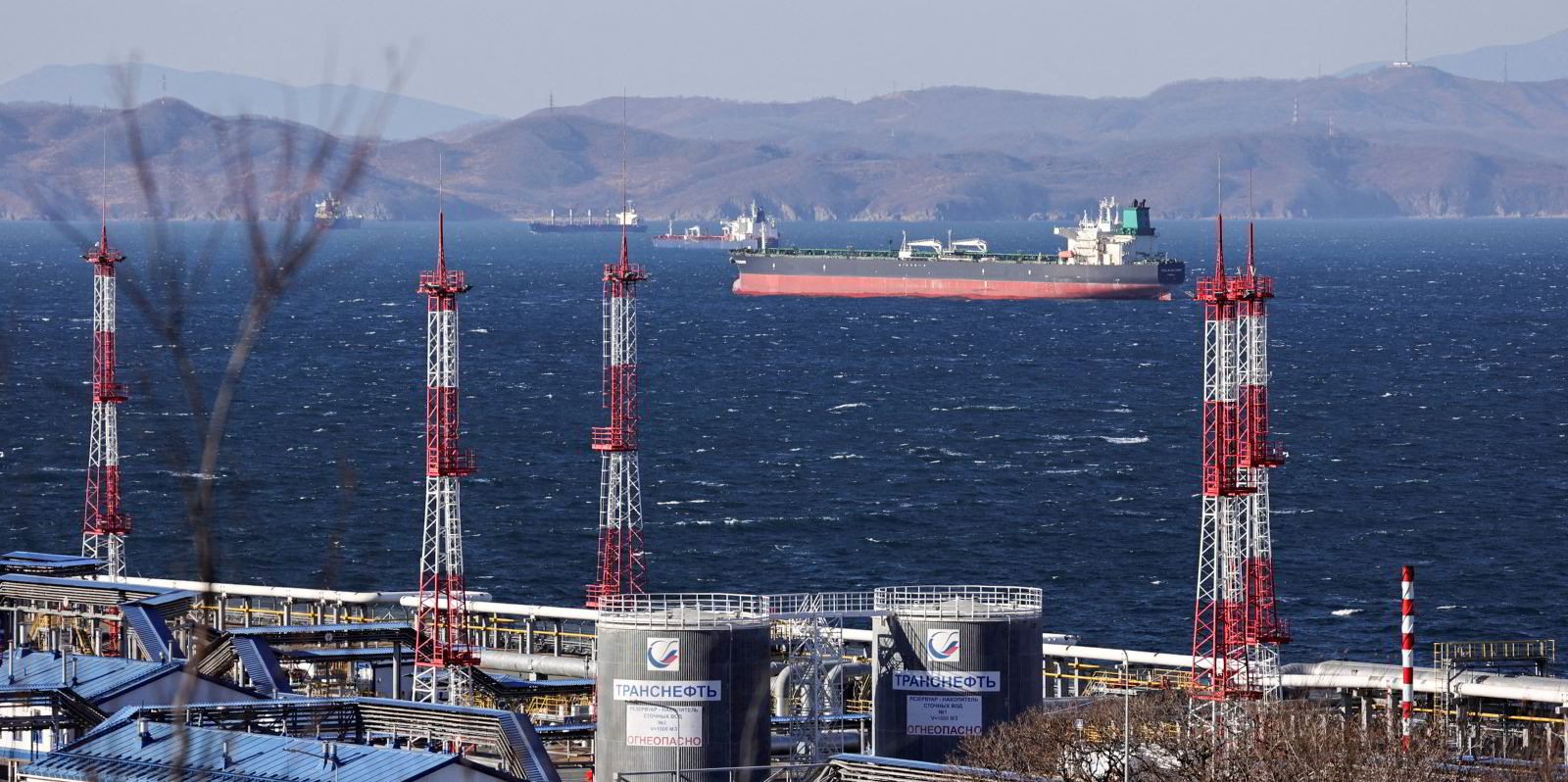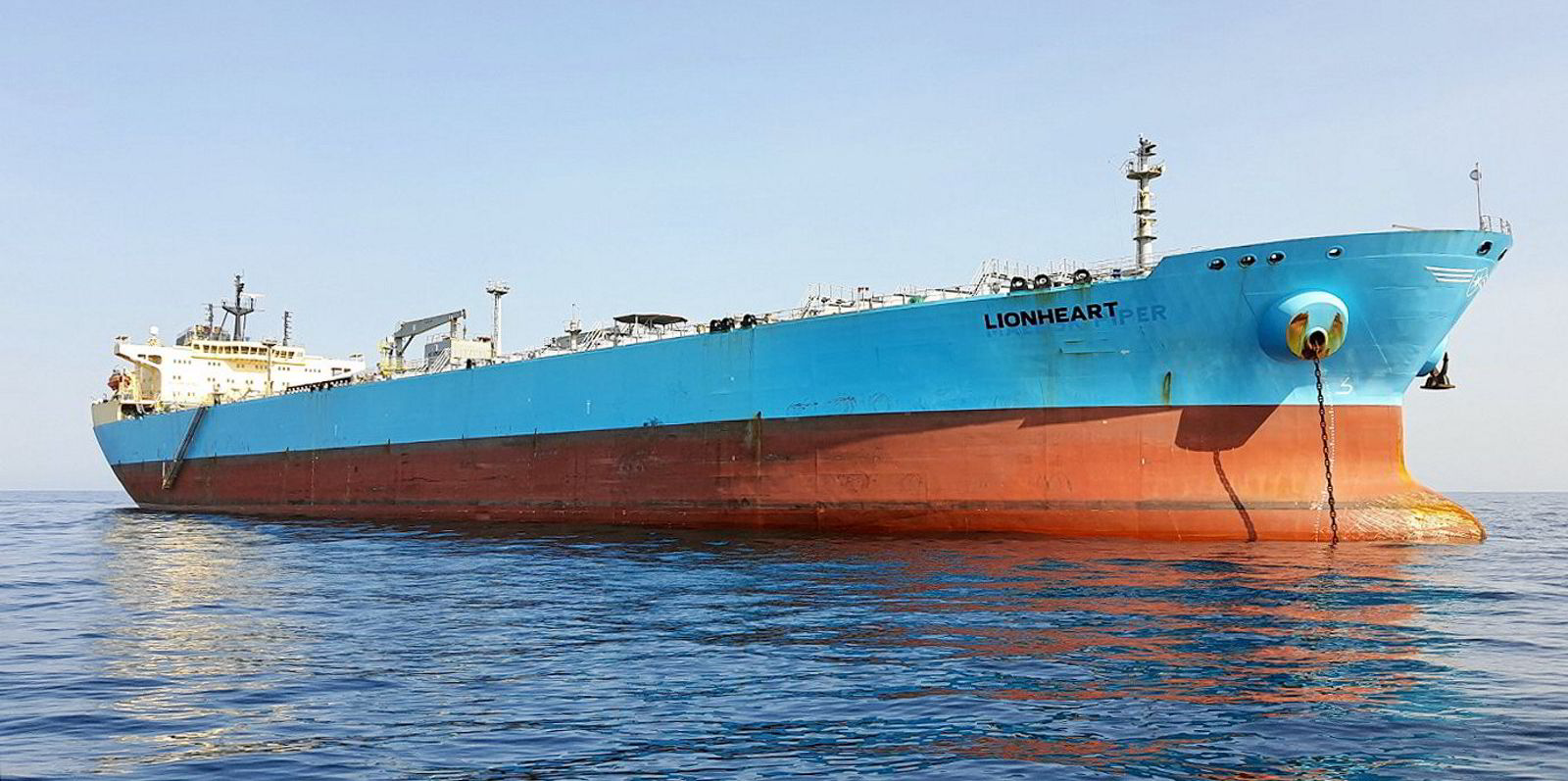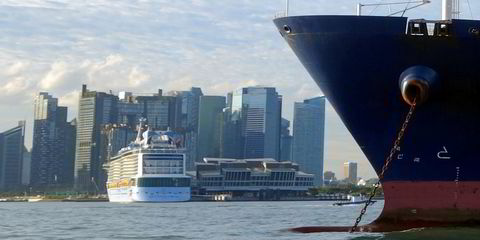More than one-third of crude loadings last month at a port at the centre of US warnings about oil price cap-busting involved Western shipping and insurance companies, according to a review of data.
Eleven of 31 shipments since 19 March from the east Pacific port of Kozmino were covered by six protection and indemnity clubs based in Europe and the US, despite data suggesting that crude sold from the port had breached the price cap.
Under the scheme drawn up by the G7 group of nations, European and US shipping interests were barred from involvement in hauling Russian crude cargoes after 5 December if sale prices rose above $60 per barrel.
But the analysis highlighted how owners, ship managers and insurers have remained involved in trading despite the International Energy Agency reporting that crude from Kozmino has sold for around $70 per barrel since December.
They include three tankers commercially managed or owned by Greek shipping companies and insurers based in the UK, US and Norway, according to the review of Kpler shipping data and ownership databases Equasis and VesselsValue. There is no evidence to suggest that any of the 11 vessels with European or US links violated cap rules or the rules of the sanctions regime.
ESPO crude — which reaches Kozmino by pipeline from Siberian oilfields — is priced higher than other Russian oils as it is less affected by the European import ban on Russian oil that also started on 5 December last year. More than three-quarters of the ESPO crude from Kozmino is shipped to China, which does not recognise the price cap.
But the trade still relies on Western shipping interests, the data shows, even though the level of European involvement at Kozmino has declined since earlier this year. Global Witness reported last month that Greek shipowners were linked to one in five cargoes from Kozmino until 31 January.
European insurers, ship managers and owners are defined by sanctions programmes as “tier three” actors that have to comply with the cap but do not have direct access to pricing information.
They rely on signed statements supplied by the importers, brokers and traders involved in striking the deals.
‘Appropriate due diligence’
They are obliged to carry out due diligence on companies involved in the transactions but can be penalised only if they fail to take “reasonable” and “appropriate” steps, according to guidance issued by Western governments. No company is so far known to have been penalised for breaching the cap.
The system in effect allows European shipping to continue hauling Russian oil if it has carried out those steps and obtained the documentation — even if anecdotal evidence points to a breach of the price cap, according to industry sources.
The IEA said the weighted average of Russian seaborne oil exports from all ports topped $60 for the first time this month since the start of the cap, after Saudi Arabia, Russia and other Opec+ nations announced production cuts.
The US sanctions body, the Office of Foreign Assets Control (Ofac), warned on Monday of the risk of faked documentation involved in oil trades.

Ofac, a branch of the US Treasury, highlighted shipments from Kozmino and said it was aware of reports that crude exported via Pacific ports may be “trading above the price cap and may be using covered services provided by US persons”.
It said US businesses are required to “reject participating in … a transaction that violates the price cap determinations”.
Analysis of shipping data and insurance cover by TradeWinds indicated that the American Club covered two Chinese-owned tankers that loaded at Kozmino in the past month.
The 115,600-dwt Nichole (built 2007) and 150,000-dwt Cathay Phoenix (built 2001) both hauled two cargoes to China over the period, according to the data. The club declined to comment on individual cases.
Industry figures said it is not clear from Ofac whether shipowners and insurers are expected to carry out further checks — including more detailed ship tracking — after the agency highlighted the use of AIS spoofing by tankers as a sign of price-cap breaches.
A senior Ofac official is due to brief shipping figures on Thursday in a Capital Link webinar.
Mike Salthouse, head of external affairs at P&I insurer NorthStandard, said further Ofac demands could lead to mainstream shipping shifting away from hauling Russian oil because financiers and insurers refuse to accept the risk.

The price cap was designed to limit the impact on global prices of the European Union’s import ban on Russian oil by keeping it flowing to countries outside of the 27-nation bloc, while restricting Kremlin revenues.
“There’s been concern at Kozmino prices … certainly since the start of the year,” said Salthouse.
“The real question they [Ofac] need to answer is: What does customer due diligence mean when there’s anecdotal evidence that cargoes have been traded above price cap but all the paperwork is in order? And what do you expect from the industry in those circumstances?
“Until quite recently, the price of Russian oil was well below price cap. So having confidence in the attestations shipowners were receiving wasn’t a problem for us.
“Now it’s a challenge for the industry because the published trading price is above the price cap. We are getting pieces of paper, which is what we’ve been told to get, but we and the shipowner don’t know whether that reflects the price actually paid or not.”
Ships covered by Western insurance in the past month include the 159,200-dwt Bear Mizar (built 2002), which Kpler data showed loading at Kozmino on Monday as the US released its alert.
The ship, owned and operated by a company listed in the Marshall Islands, has cover with the West of England P&I Club, according to the insurer’s website.
It also covers the 106,500-dwt Willowy (built 2003), which loaded on Saturday at Kozmino, and which is listed under Greek ownership, according to Equasis.
West of England P&I said: “Under the oil price scheme, as Tier 3 actors, shipowners and insurers may rely on attestations that oil of Russian origin has been purchased below the price cap.
“If an attestation is shown to be false, cover will be withdrawn. We are unable to divulge information about specific vessels.”
The Turkish-owned and managed, 115,800-dwt Yasa Golden Bosphorus (built 2007) loaded at Kozmino this month, according to shipping data, with cover supplied by Britannia P&I.
“Our member confirmed that they were in compliance with the price cap in accordance with the regulations,” Britannia said.
Norway’s Gard provided cover for the Turkish-owned and operated, 115,400-dwt tanker Riverside (built 2009), according to Equasis. It is one of two vessels listed with an EU registry, Malta, that called at Kozmino.
Gard declined to comment on individual vessels but said: “We have systems and procedures in place to ensure compliance with relevant sanctions as well as with the G7 price cap.
“In cases of suspected or possible breaches, Gard will take appropriate measures and communicate directly with those involved.”





